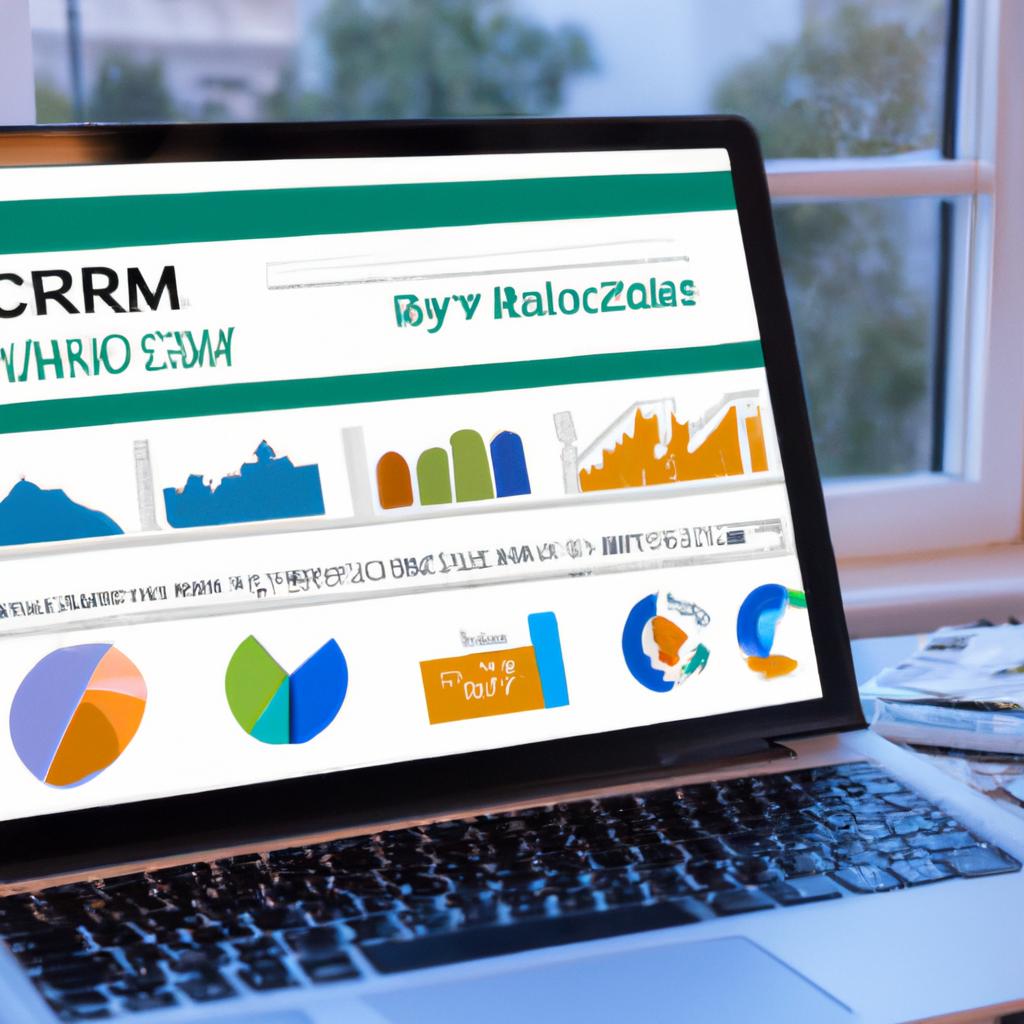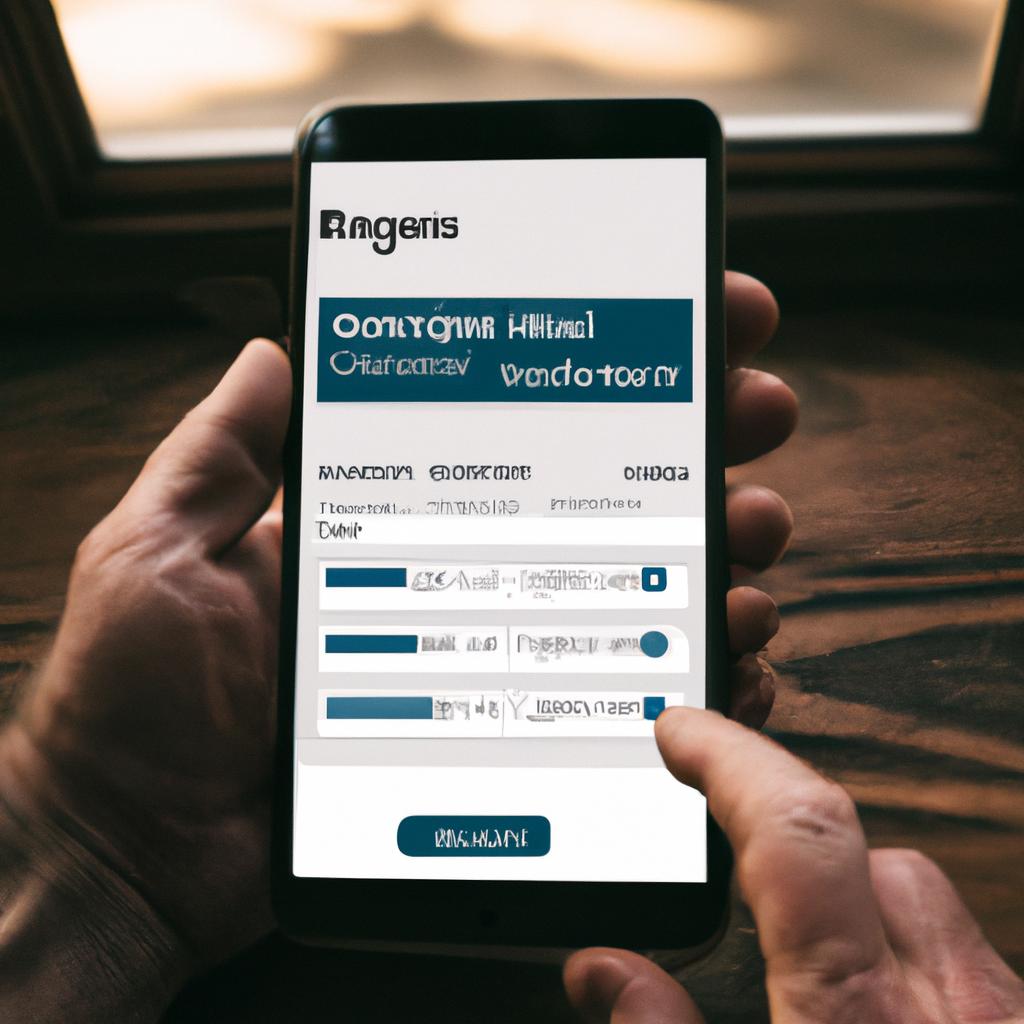How CRM Accounting Software Can Revolutionize Your Small Business
As a small business owner, you understand the importance of managing your finances and maintaining relationships with your customers. But did you know that there is a tool that can help you do both at the same time? That tool is CRM accounting software.
CRM accounting software is a powerful tool that combines customer relationship management (CRM) with accounting software to provide a comprehensive solution for small businesses. With CRM accounting software, you can manage your finances, track your sales, and maintain your customer relationships all in one place.
Implementing CRM accounting software can have a significant impact on your small business. It can help you improve your efficiency and productivity, enhance your customer relationship management, ensure accurate financial management, and enable better decision making.
In this article, we’ll explore the benefits of CRM accounting software for small business, key features to look for when choosing a software, and the top CRM accounting software options available in the market. Let’s dive in!
Benefits of CRM Accounting Software for Small Business

Running a small business requires a lot of hard work, and managing finances and customer relationships can be time-consuming. However, with CRM accounting software, you can streamline your processes and enjoy numerous benefits. Here are five ways that CRM accounting software can revolutionize your small business:
Improved Efficiency and Productivity
CRM accounting software can help you automate many of your business processes, such as invoicing, billing, and financial reporting. This automation can free up your time and enable you to focus on other important aspects of your business, such as sales and marketing.
Enhanced Customer Relationship Management
One of the biggest advantages of CRM accounting software is that it allows you to manage your customer relationships more effectively. You can use the software to keep track of customer interactions, such as emails, phone calls, and meetings, and use this information to provide personalized service and build stronger relationships with your customers.
Accurate Financial Management
Managing your finances is crucial to the success of your small business. With CRM accounting software, you can ensure that your financial records are accurate and up-to-date. You can also use the software to generate financial reports, such as profit and loss statements and balance sheets, which can help you make informed business decisions.
Better Decision Making
Having access to accurate financial and customer data can help you make better business decisions. CRM accounting software can provide you with real-time insights into your business, such as sales data, customer behavior, and financial performance. This information can help you identify areas of your business that need improvement and make changes accordingly.
Increased Profitability
By automating your business processes, improving customer relationships, ensuring accurate financial management, and making better business decisions, you can increase your profitability. CRM accounting software can help you save time and money, reduce errors and waste, and identify new revenue opportunities. By investing in CRM accounting software, you can take your small business to the next level.
Key Features of CRM Accounting Software for Small Business

If you’re considering implementing CRM accounting software in your small business, it’s essential to understand the essential features to look for in a software. Here are the key features that every CRM accounting software should have:
Sales Tracking and Management
Sales tracking and management is an essential feature of CRM accounting software. It allows you to keep track of your sales process, from lead generation to closing deals. With this feature, you can also monitor your sales team’s performance, track your sales pipeline, and forecast your revenue.
Invoicing and Billing
Invoicing and billing is another critical feature of CRM accounting software. It enables you to create and send invoices to your customers, manage your billing process, and automate your payment reminders. This feature can save you time and resources, reduce errors, and ensure timely payments.
Financial Reporting and Analysis
Financial reporting and analysis is a crucial feature of CRM accounting software. It allows you to generate financial reports, track your expenses, and manage your cash flow. With this feature, you can also analyze your financial data, identify trends, and make informed financial decisions.
Inventory Management
Inventory management is another feature that you should look for in a CRM accounting software. It enables you to manage your inventory levels, track your stock movements, and forecast your demand. This feature can help you optimize your inventory, reduce waste, and improve your customer service.
Customer Data Management
Customer data management is a fundamental feature of CRM accounting software. It enables you to store and manage your customer data, including their contact information, purchase history, and preferences. With this feature, you can also segment your customers, personalize your communication, and improve your customer experience.
By choosing a CRM accounting software with these key features, you can streamline your business processes, improve your financial management, and enhance your customer relationships.
Factors to Consider When Choosing CRM Accounting Software for Small Business
When choosing CRM accounting software for your small business, it’s important to consider several factors to ensure you pick the right software that meets your business needs. Here are the top factors to consider:
Business Size and Goals
The size of your business and your goals will play a significant role in the type of CRM accounting software you choose. If you have a small business, you may not need a software with all the bells and whistles. However, if you plan on scaling your business, you may want a software that can grow with you.
Budget
Your budget will also play a critical role in your software choice. Some software may be too expensive for your small business, while others may be too cheap to meet your needs. It’s important to find a software that fits within your budget while still providing the necessary features for your business.
Ease of Use and Integration
The last thing you want is to implement a software that’s difficult to use and integrate into your existing systems. Look for a software that’s user-friendly and integrates seamlessly with your current business processes.
Customization and Scalability
Your business needs may change over time, so it’s essential to choose a software that can be customized and scaled to meet your evolving needs. Customization and scalability can help you save time and money in the long run.
Customer Support
Finally, customer support is crucial when selecting a CRM accounting software. You want a software provider that offers reliable customer support and training to ensure you make the most of the software.
By considering these factors when selecting CRM accounting software for your small business, you’ll be able to choose a software that meets your needs and helps you achieve your business goals.
Top CRM Accounting Software for Small Business
If you’re considering implementing CRM accounting software for your small business, you may be wondering where to start. With so many options available in the market, it can be overwhelming to choose the best one for your business needs. Here are some of the top CRM accounting software options in the market:
Product 1
Product 1 is a comprehensive CRM accounting software designed for small businesses. Some of its key features include sales tracking and management, invoicing and billing, financial reporting and analysis, inventory management, and customer data management.
Product 1 offers flexible pricing plans based on your business needs, starting at $X per month. One of the pros of Product 1 is its ease of use and integration with other business tools, making it a popular choice for small business owners. However, one of its cons is that it may not be customizable enough for businesses with unique needs.
Product 2
Product 2 is another excellent option for small businesses looking for a CRM accounting software solution. Its key features include sales tracking and management, invoicing and billing, financial reporting and analysis, inventory management, and customer data management.
Product 2 offers straightforward pricing plans based on the number of users, starting at $X per user per month. One of the pros of Product 2 is its scalability and customization options, making it a popular choice for growing businesses. However, one of its cons is that it may not be as user-friendly as other options.
Product 3
Product 3 is a popular CRM accounting software for small businesses, offering features such as sales tracking and management, invoicing and billing, financial reporting and analysis, inventory management, and customer data management.
Product 3 offers pricing plans based on your business needs, starting at $X per month. One of the pros of Product 3 is its excellent customer support, making it a popular choice for businesses that need reliable assistance. However, one of its cons is that it may not be as customizable as other options.
Consider these top CRM accounting software options when choosing the best one for your small business.
Wrap Up
In conclusion, implementing CRM accounting software can be a game changer for small businesses. By providing a comprehensive solution for managing finances and customer relationships, it can help improve efficiency, enhance customer relationship management, ensure accurate financial management, and enable better decision making.
When choosing a CRM accounting software, it’s essential to consider factors such as your business size and goals, budget, ease of use and integration, customization and scalability, and customer support. By carefully evaluating your needs and options, you can choose the right software that fits your business requirements.
In this article, we’ve explored the importance of CRM accounting software for small businesses, key features to look for when choosing a software, and the top CRM accounting software options available in the market. By using CRM accounting software, small businesses can streamline their operations, improve their customer relationships, and achieve greater profitability.
So what are you waiting for? Start exploring your options today and see how CRM accounting software can revolutionize your small business!

Comments are closed.